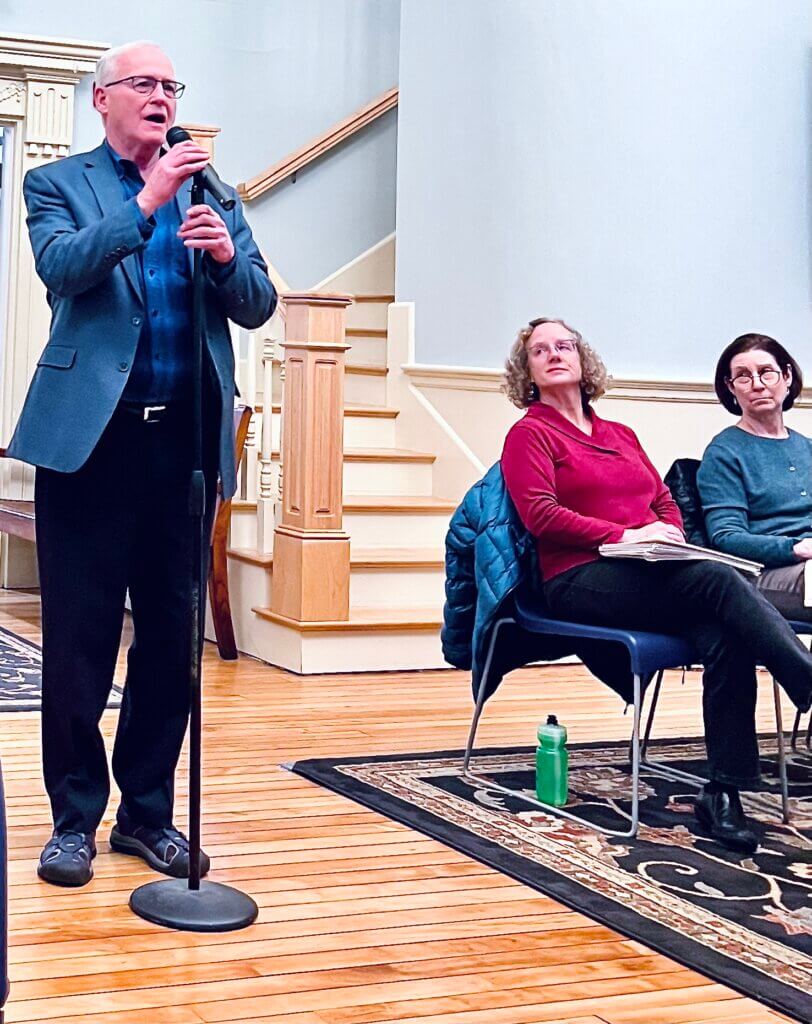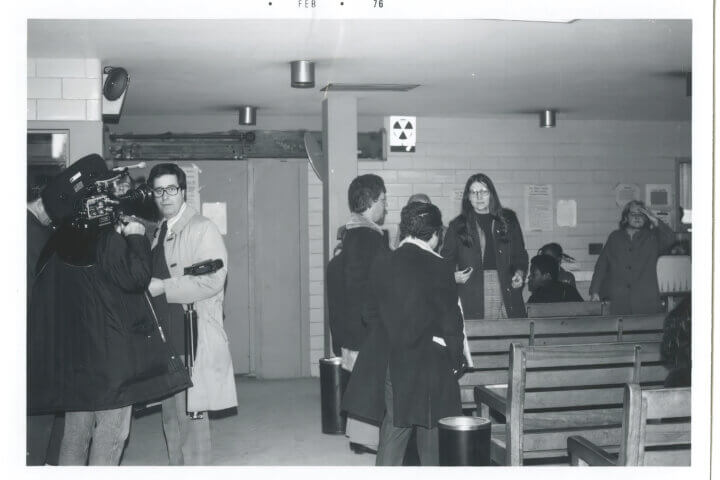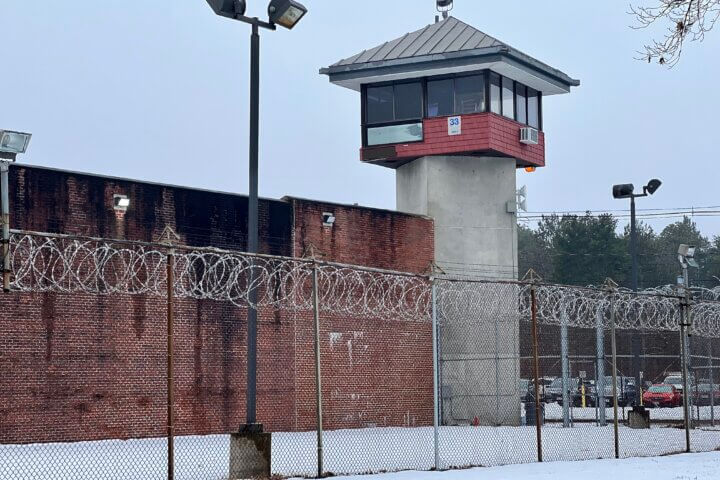By Celeste Katz Marston — Celeste@theconcordbridge.org
The Select Board emerged from a closed-door session early this week with a two-pronged plan to ensure Concord has its say on what happens once its state prison shuts down.
“We listened to the many voices we’ve heard asking to have a more active voice in the disposition of MCI-Concord,” Select Board Clerk Mary Hartman said.
The board voted unanimously to set up a local advisory committee “that will bring together some of the expertise that we have in town and kind of flesh out what [Concord wants] to see there,” she said.
On a parallel track, the group “also agreed to support the establishment of a state commission through an amendment to the governor’s budget bill” that would bring together Concordians and members of state agencies to discuss the prison’s future, she said.
Additionally, Hartman said, a recent League of Women Voters of Concord-Carlisle forum on the prison underscored “the continuing need for communication” with residents on the future of the 1878 house of correction.
As first reported by The Concord Bridge in late January, the commonwealth intends to shutter the prison, which has been operating well below capacity, and shift its inmates and staff to other lockups by July 1.
Closing MCI-Concord, the oldest operating men’s prison in Massachusetts, will save around $16 million annually, Gov. Maura Healey said in unveiling her $58 billion Fiscal Year 2025 budget proposal.
News of the coming closure set off a flurry of speculation about the destiny of the 50-odd acres of prison land, with suggestions ranging from affordable housing to commercial development. The shutdown won’t affect the nearby minimum-security Northeastern Correctional Center.
Lawmakers weigh in

State Sen. Mike Barrett (D-Lexington) told the Select Board Monday evening that “the state recognizes that Concord has a very strong claim on the disposition of the property.”
Barrett said he senses that state officials “really feel invested in creating a model of collaboration. I don’t think they feel that they could get away with railroading the town. The town isn’t about to stand for that, and it’s capable of standing up for itself.”
He said his best guess is the state is looking toward “mixed-use development” that could include “a significant family housing component” as well as retail uses and open space.
Notably, the legislator also warned that while “there is much to be said for a formal commission,” membership in such groups can involve background checks, which “inevitably will involve additional delay… So we need to consider the pros and cons.”
As others have said, including Deputy Town Manager Megan Zammuto, Barrett cautioned “the process is likely to take two, three, four years. This is a very complicated site, so nothing moves very quickly.”
State Rep. Carmine Gentile (D-Sudbury) told the Select Board one way to make sure the town ends up satisfied with the ultimate fate of MCI-Concord is “to realize what you want to have happen there and rezone the parcels, so that what you want to have developed there is what’s developed there — and nothing else.”

And state Rep. Simon Cataldo (D-Concord) urged the town to embrace working with the state: “We have nothing to fear from formalizing the collaborative spirit that they have expressed that they’re interested in,” he said.
“I don’t think that we need to fear backlash or punishment from this administration from putting a strong foot forward.”
Select Board member Terri Ackerman thanked “all the citizens who have written [to] us with some really excellent ideas, some very specific and well thought out ideas.
“We really will be reading those carefully and using that as we set up our local task force, which we are going to be doing as soon as possible over the next couple of weeks, because we really want to get started right away,” she said.
Added board Chair Henry Dane, “some of the people who wrote those letters may actually be unfortunate enough to be victims of being appointed to this task force.”





